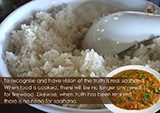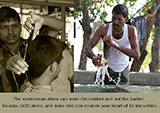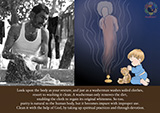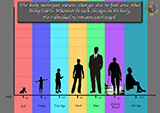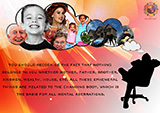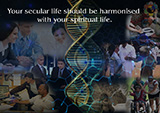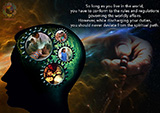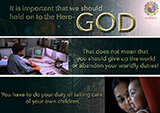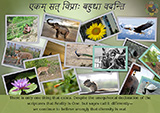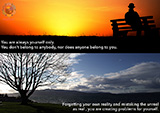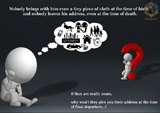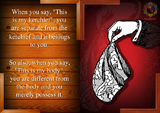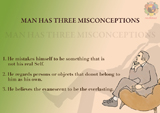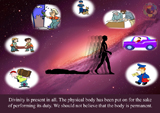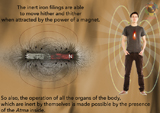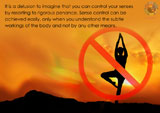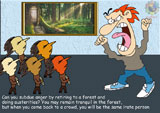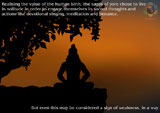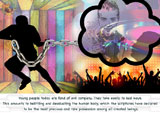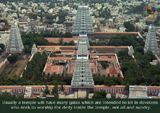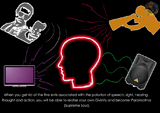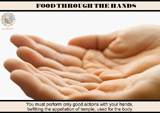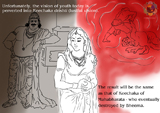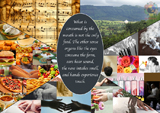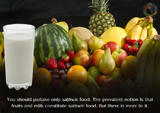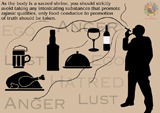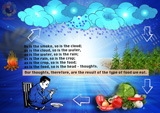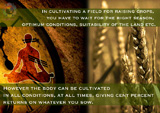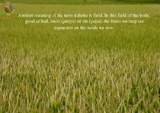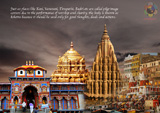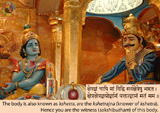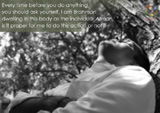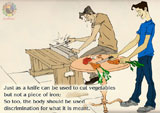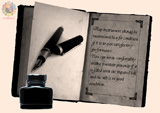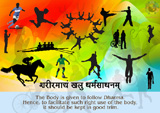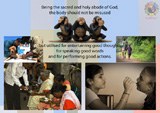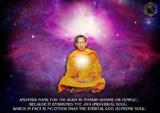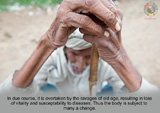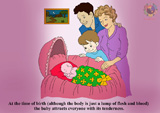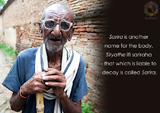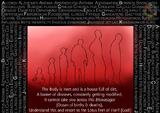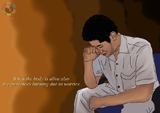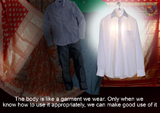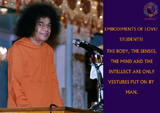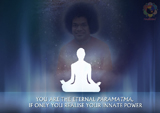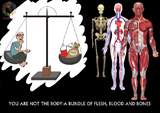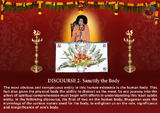|
|
| 'Like' us on Facebook | Follow us: |
Posted on: Jul 29, 2014
SUMMER SHOWERS 1990 ILLUSTRATED (Part 02)
SSI - 04.08.2014 |
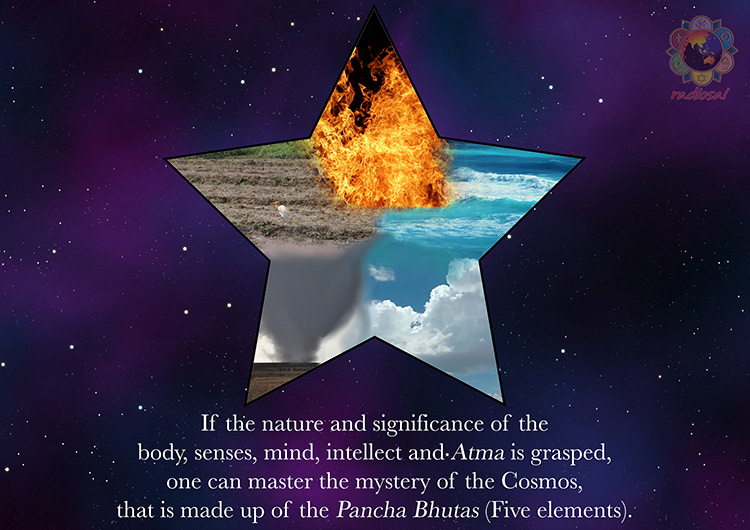 |
Bhagwan would often say, “My life is My Message.” A simple understanding of this declaration is that He lives every day the message He teaches. One other meaning one could draw is that, ‘His message is His life’! That is, the message that Bhagawan gave is the very life essence of His descent as an Avatar. And the fact that even today, we can go through the thousands of discourses He delivered is in itself a sign of His benediction upon us.
And among the discourses Baba delivered, those that He gave as part of the Summer Course series are even more special. This is because often these are a set of discourses centered around a specific theme, elaborated gradually. These are a treasure mine for any sincere spiritual seeker. So in our attempt to encourage more people to dwell deeply into these divine discourses, and contemplate on the message therein, we begin with prayers, a new series today.
In March 2013, with the same motive in mind we began a radio series entitled Shravanam Mananam Nididhyasanam. In this live show we began going through the 1990 Summer Course discourses, and needless to say we were overwhelmed by their profundity. So we now wish to offer these discourses to our readers, in this new format. We will try to pictorially depict the messages in these discourses in the form of a poster. These will be sent everyday to all our Sai Inspires subscribers as a link along with the Thought for the Day (If you are not a subscriber yet, please do subscribe). And after these posters are dispatched, they will be added to this page, on the right hand side. You can view, download and even print and use them if you so wish. Also given below is an abridged version of the discourse as published in the Summer Showers 1990 book.
We pray to Bhagawan to bless and guide this new endeavour of ours. And we invite you all to partake of and imbibe our Master’s ethereal message.
Sanctify The Body You are not the body, a bundle of flesh, blood and bones! Students! Embodiments of Divine Love! The body, the senses, the mind, and the intellect are only vestures put on by man. Only when we understand the nature and significance of these adjuncts can we make proper use of them. You wear trousers, banian, shirt, and coat. Only when you know how to use each of these things correctly can you use them in the proper way and get the bene- fit therefrom. Otherwise you may make bizarre use of them, like putting on the banian over the shirt or wearing the pant in the reverse direction. Hence you generally ensure that you wear your daily attire correctly so as to give a decent and attractive appearance. Likewise the body is our garment. It is only when we know how to wear it and use it appropriately that we can make good use of it and get the best out of it. Dahyati iti dehah — That which is burnt is called the body. This is the derivative meaning of the word deha (body). It is a matter of common knowledge that the body is burnt after death. But even when it is alive, the body experiences burning due to worries. The body is inert. It is a storehouse of filth and subject to all kinds of diseases. It is a bundle of bones and flesh and cannot help you to cross the ocean of births and deaths. So, Oh Mind! Instead of relying on such a flimsy body, better cling to the Lotus Feet of Lord Hari. This was the prayer of the sages. The body, which is made up of the five elements, is impermanent. But you who have put on this body are verily the supreme God who is eternal and unchanging. It is therefore, up to you to use your power of discrimination in using the body wisely and thereby to derive joy from it. Sarira is another name for the body. 'Siryathe iti sariraha' - That which is liable to decay is called sarira. At the time of birth, the body is a lump of flesh and blood. As it grows, it attains beauty and enters the stage of adolescence and adulthood, when it becomes puffed up with the pride of beauty and vigour, etc. In due course, it is overtaken by the ravages of old age, resulting in loss of vitality and susceptibility to diseases. Thus the body is subject to many a change. Yet another name for the body is mandir (shrine or temple), because it enshrines the jiva (individual soul), which in fact is no other than the eternal God (Supreme soul). Being the sacred and holy abode of God, the body should, therefore, be not misused but utilised for entertaining good thoughts, for speaking good words, and for performing good actions. Hence, to facilitate such right use of the body, it should be kept in good trim. Any instrument should be maintained in a fit condition if it is to give satisfactory performance. For instance, you can write comfortably with a fountain pen only if it is filled with the required ink and when the nib also is in good condition. So also, a knife can be used for cutting provided it has the required sharpness and suitable handle etc. Likewise, the body, which is an instrument to perform righteous actions, should be kept in a suitable condition for that purpose. You can use a knife for cutting vegetables, fruits etc., but not for cutting a piece of iron. So also we should use the body with discrimination to achieve the purpose for which it is meant. Every time before you do anything, you should ask yourself, I am the Brahman dwelling in this body as the individual Atman. As such, is it proper for me to do this action or not? Only then will you be using the body in the right manner. Just because you have this body, you should not use it according to your whims and fancies, forgetting the fact that it is the temple of God, which should, therefore, be used for sacred purposes. The body has also been called kshetra. The one who cognises this kshetra is the kshetrajna (the knower of the kshetra). You are the knower of the kshetra and the body is the kshetra, which is known by you. Hence, you are the witness of this body. Kshetra means a sacred place associated with the Divine and filled with holy vibrations, as for instance the places of pilgrimage like Kasi, Varanasi, Tirupati, Badri, etc. These kshetras are meant to be used for the performance of worship, redeeming religious vows, giving charity, and such other sacred activities. Similarly, in the kshetra of the body, good thoughts and good actions alone should prevail. This is the inner meaning of the appellation kshetra used for the body. Another meaning of the term kshetra is field. In this field of the body, the fruits we reap are dependent on the seeds we sow. If we sow good thoughts, we can harvest good fruits. Bad thoughts will only yield bad results. The body is thus a field in which the seeds of punya (merit) and papa (sin), are sown. We should, however, remember that the body as a field has certain advantages when compared to the agricultural field. In cultivating a field for raising crops, we have to wait for the right season and the optimum conditions to sow a particular variety of crop. The suitability of a land for growing a particular crop has to be taken into consideration. Sowing cannot be done indiscriminately. However in the case of the field of our body, there are no such constraints. It can be cultivated in all conditions and at all times including night and day. When you sow seeds on an arable land, you may get a good crop or poor crop. You may not realise your expectations. But in the case of the human body, you are bound to reap the fruits of the good or bad thoughts and actions, which you sow as seeds. You are sure to have cent percent return. As you sow, so you reap. This is an immutable law. You must therefore ensure that only seeds in the form of good thoughts and deeds are sown. You should not misuse the body as you like. You should discriminate between the transient and the permanent and utilise your body for achieving the ultimate good. Those who wish to use the body properly and ensure that they entertain good thoughts, perform good acts, and reap good results should scrupulously follow two things, viz., regulation of diet and regulation of other living habits. You should not consume any and every type of food merely to appease hunger or the palate. You must eat only sathwic (pure) food. Our thoughts are determined by the kind of food we consume. For instance, as in the firewood so is the fire as well as the smoke; if you use sandal wood, you will get the fragrant smoke; if you make use of a foul-smelling kind of fuel, you will get a foul-smelling smoke. Thus, the kind of smoke depends on the kind of fire; again as is the smoke, so is the cloud; as is the cloud, so is the water, as is the water, so is the rain; as is the rain, so is the crop; as is the crop, so is the food; as is the food, so is the head — thoughts. Our thoughts, therefore, are the result of the type of food we eat. The body is cleansed by water, while the mind is purified by Truth. It is only when we take food that is conducive to truth that we can pursue the path of truth. As the body is a sacred shrine, you should strictly avoid taking any intoxicating substances. Articles of food that promote rajasic qualities, which inflame passions, should be eschewed What is the meaning of sathwic food? The prevalent notion is that fruits and milk constitute sathwic food. But that is not all to it. What is consumed by the mouth is not the only food that enters the body. The other sense organs, like the eyes, the ears, the nose, and the hands, also consume objects from the external world. Hence, just because a person takes fruits and milk through one of the five sense organs, he cannot claim to have taken sathwic food, unless the food taken by him through all the five senses is sathwic in nature. Through the eyes, you have to see only what is pure. To see all kinds of things indiscriminately will spell disaster. The power of sight should be used only for sacred purposes. Unfortunately, however, the vision of youth today is getting increasingly perverted like keechaka drishti (lustful vision). The result is that they will meet with the same fate as Keechaka of the Mahabharatha, who was destroyed by Bheema. Students should be particularly careful in this regard. It is only when they use their eyes in a pure and sacred way will they be receiving sathwic impressions through the eyes. The ears also need pure food. This means we should listen only to sacred words and to accounts relating to the Divine. Let us always hear good and pleasant things about others. In this way, we must safeguard the ears from being polluted by hearing bad things. Only thus can we ensure consuming sathwic food through the ears. Only fragrant sweet-smelling scents should be absorbed through the nose. Inhaling bad odours will result in disease. If you inhale foul air, you will be breathing in disease-producing organisms. You must inhale pure air, in a clean open space. The hand also should be used to consume pure food. In other words, you must perform only good acts with your hands, befitting the appellation of temple, used for the body. When you get rid of the five evils associated with the pollution of speech, sight, hearing, thought and action, you will be able to realise your own Divinity and become Paramatma (Supreme Soul). If the senses are fed with polluted food, you cannot become pure merely by taking milk and fruit. You must partake of pure sathwic food through all the five sense organs. Usually a temple will have many gates. These gateways are intended to let in only devotees who seek to worship the deity inside the temple, but not all and sundry. Similarly for this temple of the body there are five gates. What is the purpose of these door-ways? If we build a house and erect doors in it, they are intended to let in our kith and kin only and not all stray animals like dogs, pigs and donkeys etc. If such unwanted animals try to enter, the doors are shut against them. Likewise, the doors of the five senses in this sacred body should be kept open for sacred and divine entrants alone. Only then will it deserve the name kshetra or mandir. On the other hand, if unholy objects and ideas are allowed to enter, it ceases to be a holy temple. Thus it may be seen that sathwic food is very essential for putting the body to proper use. Next comes vihara — movement or association with places, persons, objects, etc. You must consider seriously what sort of places you may visit, what kind of environment in which you should live and what type of persons with whom you ought to associate yourselves. Tell me your company and I shall tell you what you are, goes the adage. You should eschew all bad company, because your thoughts are influenced by the company you keep. Young people today are readily cultivating evil company. They take easily to bad ways. This amounts to belittling and devaluating the human body, which the scriptures have declared to be the most precious and rare possession among all created beings. Realising this fact, the sages of yore chose to live in solitude in order to engage themselves in sacred thoughts and actions like devotional singing, meditation and penance. But even this may be considered a sign of weakness, in a way. For instance, if you want to subdue anger, can you do it by retiring into a forest and doing austerities for any number of years? As your anger arises in the midst of people, it has to be conquered only in the same milieu and not in unpeopled forest. You may remain tranquil as long as you are in the forest, but when you come back to a crowd, you will be the same old irate person. If you want to control your senses, it is a delusion to imagine that you can do so by resorting to religious penance. It can be achieved easily if you understand the subtle workings of the body, but not by any other means. Suppose you buy a new car, you must know how to drive it properly. Just because you have purchased it with your own money and got it duly registered, you cannot sit at the steering wheel and drive as you like, it would then be dangerous to your car, to yourself and to the public as well. Although the car may be yours, you must know how to use it properly. It should be noted that all the problems and troubles of man are due to the fact that he does not know how to make proper use of his body. Hence, he becomes an easy prey to sorrow and disease. One thing should always be remembered. No one can go against the divine Will. No one can alter the Lord’s Law which is immutable. The body is inert. Many may argue as to how the body can be called inert, when it is seen to be capable of growth. The answer to this doubt is that when you clean your house daily and go on dumping the sweepings in one place, it will grow into a big heap. Likewise, when you go on dumping into your body various kinds of food so many times per day, your body, though insentient, will grow like the heap of garbage. It should however be realised that the body is able to function by way of eating, talking, walking and growing etc., because of the chaitanya (consciousness) within it. In this respect, the body may be compared to a car. Eyes are like the headlights, tongue like the horn and ears like the loudspeakers. It is because of the battery inside the car that the above mentioned parts of the car are also able to function. Similarly, the various organs of the inert body are able to function only because of the Atmic Power inside the body. To cite another analogy, the inert iron filings are able to move hither and thither when attracted by the power of a magnet. So also, the operation of all the organs of the body, which are inert by themselves is made possible by the presence of the Atma inside. It is a pity that we spend a lot of time, effort and money to beautify the transient and inert body, forgetting our real Atma, Self, which is permanent and sentient. Man is prone to three kinds of misconceptions in relation to his body. One is to mistake himself to be something that is not his real Self. Another is to regard persons or objects that do not belong to him as his own. The third is to believe the evanescent to be the everlasting. Man considers the body as his real self. If that is the case, why should he say, this is my body. This statement clearly implies that he is different from the body, because the owner is different from what he owns. For instance, when a man says, this is my kerchief, he is apart from the kerchief. Hence, how can one say that he is the body? This is the first and basic blunder. Secondly, in worldly matters man is misled by the belief that he is the owner of various kinds of properties like houses, lands, vehicles etc. You build a house and call it yours. When you sell it, it is no longer yours. Likewise, you buy a car and call it yours. When it is sold, it ceases to be yours. So, things are yours only as long as you own and use them. Forgetting that all these possessions are temporary, like fleeting clouds, you develop undue attachments for them. In fact, nothing is yours. How can those that belong to the body be yours? All these misconceptions are caused by the veil of maya (delusion) and the resultant sense of possessiveness and the aberrations of the mind. Prior to marriage, no one can say who is the husband and who is the wife. Before birth, nobody can say who is the mother and who is the child. Only after marriage do you say this is my wife. It is only after birth do you declare that he is my son. But these relationships are transient and not permanent and are based on the wrong identification of oneself with the body. Nobody brings with him even a tiny piece of cloth at the time of birth, and nobody leaves his address even, at the time of death. If they are really yours, why won’t they give you their address at the time of final departure? Nothing belongs to you. Forgetting your own reality and mistaking the unreal as the real in this illusory world, you are creating problems for yourself. You are always yourself only. You don’t belong to anybody, nor does anyone belong to you. There is only one thing that exists. Despite the unequivocal declaration of the scriptures that Reality is One, but sages call it differently—we continue to believe wrongly that diversity is real. Let us consider the case of the head of a household or family. His wife calls him — My dear husband. His son calls him — My dear father. His mother calls him — My dear son, while his daughter-in-law refers to him as — My dear father-in-law. Thus, one and the same person is called in different ways according to various relationships with the body. As the scriptures declare — the One has become many. Therefore, there is unity underlying the diversity. There is only One. That one is the Hero — God; all the rest — i.e. the entire world, is zero. When you put one zero by the side of that one, it becomes ten; with one more zero it becomes a hundred, and with a third zero, it becomes one thousand, and so on. Wherefrom do all these zeros get their value? It is only from the Hero. If you remove the Hero, there is no value for any number of zeroes. Therefore, God alone is the Hero. The delusion of the body, mind, intellect, etc. are only zeroes. So, it is important that we should hold on to the Hero — God. That does not mean that you should give up the world or abandon your worldly duties. You have to do your duty by your kith and kin. But while thus discharging your duties, you should never deviate from the spiritual path. Your secular life should be harmonised with your spiritual life. So long as you live in the world, you have to conform to the rules and regulations governing the worldly affairs. But whatever you may do, you must not lose sight of the supreme spiritual goal of life. You should recognise the fact that nothing belongs to you whether mother, father, brother, kinsmen, wealth, house, etc. All these ephemeral things are related to the changing body, which is the basis for all mental aberrations. The body undergoes various changes due to food and other living habits. Whatever be such changes in the body, the individuality remains unchanged. The changes of name and form such as childhood, boyhood, manhood, and old age pertain to the body and hence illusory. You should not therefore consider the body as real and permanent at all. Nevertheless, it is your duty to ensure that the body is not subjected to disease and is maintained as a fit instrument. As long as you sail in the river of life, you must see to it that the boat of your body does not develop holes or leaks thereby preventing water from entering into the boat. The boat may be in water, but there should be no water in the boat. Remain in the world and attend to your duties, but don’t allow worries to enter your mind and make your body susceptible to all kinds of diseases. Consider the body as only an instrument. To keep this instrument of the body in good trim, you have to regulate your food and other habits. Also, look upon the body as your vesture or clothing, and resort to washing it clean from time to time, just as soiled clothes are cleaned by the washerman. All that the washerman does is to remove the dirt from the cloth enabling it to regain its original whiteness. So too, purity is natural to the human body, but it becomes dirty due to improper use; and therefore you should get it cleaned with the help of God as washerman, by resorting to such practices as prayer, japa, meditation, and love of God. The washerman alone can wash the clothes, but not a barber. So also, God alone, and none else, can cleanse your heart of its impurities. Never forget that this body is only a garment. It is due to the ignorance that you look upon the body as your real Self. Only when you get rid of this ignorance, will you shine as the effulgent Sun of Wisdom. Students! Besides the body, you have to recognise the role and importance of the other related entities like the sense organs, mind, and intellect and keep them in good shape. If you keep laddu (an Indian Sweet), or cloves in your shirt pocket and forgetfully give the shirt to the washerman, you will find that the pocket has developed stains when the washerman brings the shirt back to you after washing. Likewise the mind is stained with bad impressions if you allow bad thoughts to enter it. It is only when the nature of each of these constituents of your personality, viz., body, senses, mind, and intellect is properly understood will you be able to lead an integral and purposeful human life. Otherwise, you will become a victim of all sorts of difficulties and problems. You need not waste your time in the routine spiritual practices like japa and dhyana (meditation). To recognise the truth is the real sadhana (spiritual exercise). When food is cooked, there will be no longer any need for firewood. Likewise, when truth has been realised, there is no need for sadhana. During this fortnight if you are able to grasp the nature and significance of the body, the senses, the mind, the intellect, and also the Atma (God), which is the supreme witness presiding over the rest of them, you will be in a position to master the mystery of the Cosmos made up of the five basic elements (pancha bhuthas). Ultimately, as God is the basis of everything, students have to develop faith in God. |
- Team Radio Sai
What do you think about this series? Please let us know by writing in to h2h@radiosai.org. Do not forget to mention your name and country.



